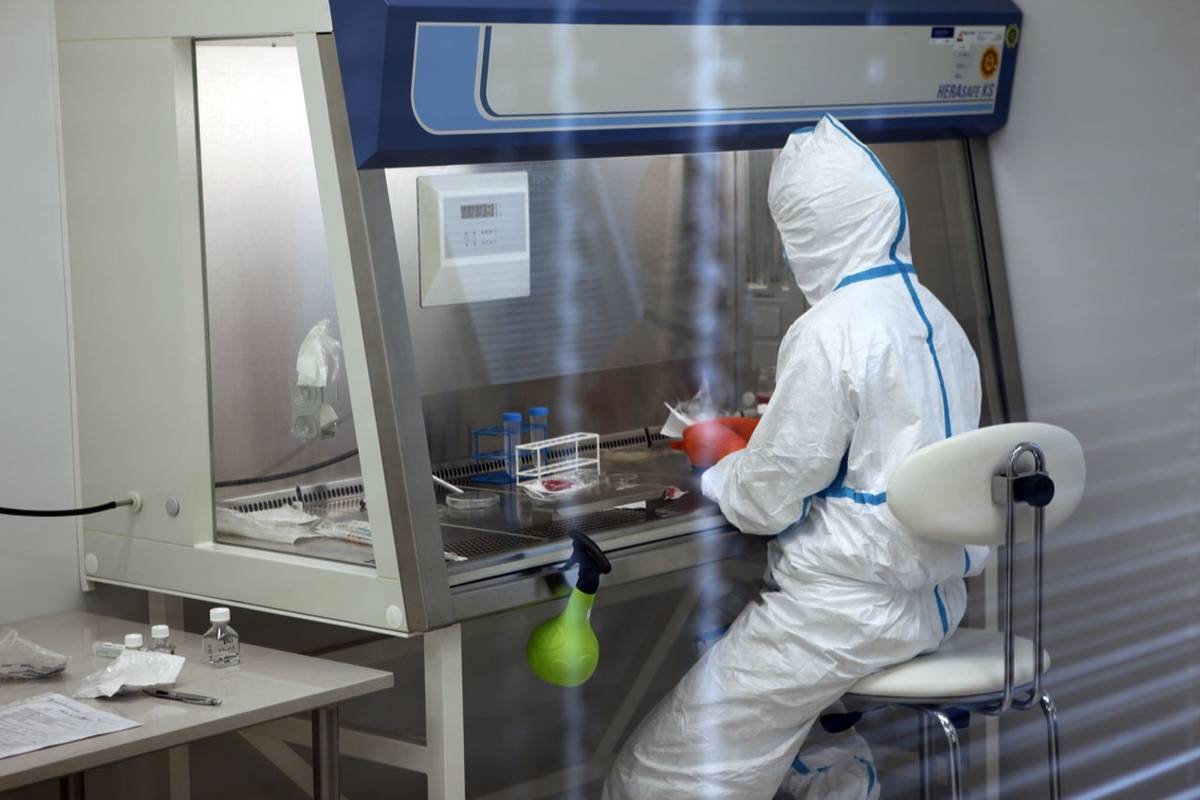A Ceramic HEPA Filter with NBC Performance Characteristics Exceeding that of Traditional, Non-ceramic Filters
A HEPA filter designed to be nonflammable, corrosion resistant, and compatible with high temperatures and moisture

Background
High Efficiency Particulate Air (HEPA) filters remove airborne particulates from a gas stream or ventilation system. The lifespan of the filters is determined by filter design and materials. Existing HEPA filters are made from glass or paper fiber, which are fragile, easily damaged, and have limited shelf life; and in limited cases, metal or Teflon©, which are subject to corrosion, or encounter other regulatory issues.
Technology Overview
The LLNL ceramic HEPA filter is designed to be nonflammable, corrosion resistant, and compatible with high temperatures and moisture. The ceramic HEPA filters and materials are tailorable. They can be manufactured to replace existing filters with more durable and longer-lived ceramic versions to minimize retrofit problems, waste and costs while meeting regulatory requirements. Industries utilizing fume hoods and glove boxes can benefit from longer-lived, nonflammable and corrosion resistant ceramic filter. The ceramic HEPA filter was designed to meet commercial and DOE requirements, as well as to minimize upgrade installation logistics for use in existing facilities. Current performance requirements are described in DOE Standard 3020. The ceramic filter will significantly increase filter life span and reduce life cycle costs of standard filtration systems, but also can enable new overall process gas system and ventilation system design. Ceramic HEPA filters open the doors for new applications of HEPA filtration in numerous industries, such as biotechnology. Other applications are nuclear reactors, radiological facilities and other hazardous material processing facilities encounter nontrivial contamination issues and life cycle costs (both operational and waste disposal) for filters and affiliated support system.
Features
- moisture resistant
- longer lifespan
- more durable
- nonflammable
- more corrosion resistant
- washable, reusable in some applications
Benefits
- Increase safety of operations
- Minimize contamination issues
- Longer operational life of filters
- Longer shelf life of filters
- Minimize operational downtime due to maintenance outages
- Fewer interruptions in the manufacturing process
- Lower life cycle costs
- Lower support system and regulatory compliance costs
- Lower waste disposal costs
- Capable of handling higher temperatures, higher pressures, more resistant to chemical attack, and more resistant to fire
- Equal or better flow rate, and pressure drop
Applications
- Biotech
- Pharmaceutical Manufacturing
- Hazardous Materials Processing
- Metals Processing
- Wastewater Treatment
- Semiconductor Fabrication
- Clean Coal and Nuclear Power Generation
- Radiological Facilities
- Aerospace
- Defense Industries
- Petroleum Processing